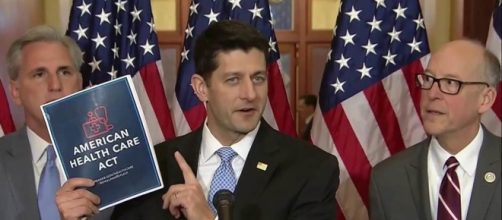The plan of the republicans to repeal and replace the Affordable Care Act (ACA) is moving forward through the House and a full vote is getting closer. But aside from the expected opposition by Democrats, GOP leaders will have to deal with their own colleagues to approve the proposal as it is.
The Republican bill, which the party calls the American health care Act, repeals 2 key points of the current legislation, the individual and employer mandates, which require individuals to have health coverage, and larger companies to provide affordable insurance to their employees, otherwise both might be subject to penalties.
Other changes
Nonetheless, the law changes some other core provisions of the Democrat’s bill enacted in 2009. Most of the subsidies granted today, including the Medicaid ones, will be reduced, according to the proposal debated in Congress. The new legislation would give room to the government to cut additional taxes on drug makers, insurers, makers of medical devices and high-income households, established by ObamaCare. The Congressional Joint Committee on Taxation estimated losses of $460bn, starting in 2018, in the government revenue over the next ten years, in case the new law is approved.
Republicans fighting with themselves
Although the strong opposition of the Democrats is provoking endless debates – a session in the House Energy and Commerce Committee lasted 27 hours before the lawmakers finally gave their approval – the most difficult hurdle for GOP leaders to move forward is the resistance of their own fellow Republicans, especially from the Senate.
In a tweet Senator Tom Cotton, Republican from Arkansas, said the House leadership should “start over." The conservative wing of the party has ironically given the proposal the nickname ObamaCare 2.0. They believe the law only amends the current legislation and is not bringing the deep changes advocated by them, especially with the taxes issue.
Breitbart News reported that a group of Senators and House members, led by Senators Rand Paul, Mike Lee, and Ted Cruz, are employing efforts to make Republican leadership rethink how to handle the process, and halt the proposal. The next moves, though, remain uncertain. So far, none of the main backers seem to want to start over.

